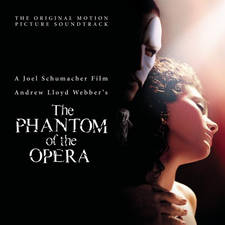How do you write music for a true crime podcast?
13 March 2018, 12:08 | Updated: 18 February 2020, 11:13
Thomas Hewitt Jones is the composer behind the futuristic music for our brand new true crime podcast, Case Notes. So we asked him how he'd come up with his ideas for this unique project.
What did you find were the challenges of writing for a podcast, like Case Notes?
Writing music for a podcast is about conveying subtle nuances of a narrative. The original music's function in Case Notes is to help depict the difficult emotions behind the gruesome events leading up to the various crime scenes. Of course, the musical palette is rich already as each episode includes recordings of classical music, so I see my job as helping to knit these together into an overall sound for the series.
Listen to Case Notes on any device here >
What did you most enjoy about the process?
The Case Notes team have really dug deep and found classical music's most heinous and terrible stories, many of which are so eerie that they would be difficult to make up!
Where did you get your ideas from?
In fact, my first job after leaving university was writing music for podcasts with a production company based in Soho. Writing cues for podcasts is more linear than writing for an audiobook. Scoring music for audiobooks is often centred around very short 'stings', indicating new chapters or key elements of the story.
Which has been your favourite mystery to write the music for so far?
Without doubt it was the episode about Min Kym (to be released on 5 April), because I found her eloquence describing the theft of her violin and the terrible knock-on consequences extremely compelling. Her personal journey was so sad, and yet she described her experience so bravely.
Where did the ideas for the main theme music come from?
The idea was to combine classical pizzicato with a more 'mainstream' hip-hop vibe, in order to create a hybrid sound for the theme that will hopefully seem new and yet familiar to podcast listeners. The theme itself also has a slightly 'lo-fi' vibe which I heard in the theme to the famous podcast Serial. I wanted to hint at that theme while being completely different.
What instruments and sounds did you use for the music?
I used some of my own sample libraries mixed in with a couple of commercial sound libraries, then combined these with pianos and live cellos and the odd bit of violin from my brother, violinist Simon Hewitt Jones. I'm always a fan of using as many live instruments as possible for this sort of project, because there is a trend at the moment to use almost exclusively sampled instruments. I always try hard never to sound the same as everyone else.
Is there a musical mystery that particularly intrigues you?
It isn't really a heinous crime so much as an extremely naughty one, but I always laugh at the story of Thomas Weelkes (c.1576-1623), composer and organist of Chichester Cathedral, who drank and swore a lot. He was famously fined for urinating off the side of the organ loft during Evensong, and it is no surprise that he was eventually sacked.
What else are you working on at the moment?
I am in New York in April for my first ever premiere at Carnegie Hall, of a choral piece for the National Children's Chorus of the USA. The text of the work is a poem called 'Give me your tired, your poor' by Emma Lazarus, a text written on the plinth of the Statue of Liberty.
Find out more about Thomas Hewitt Jones on his website and follow him on Twitter @thewittjones
Listen to Case Notes on Global Player, Apple Podcasts, Android or listen on your Mac or PC here.


































